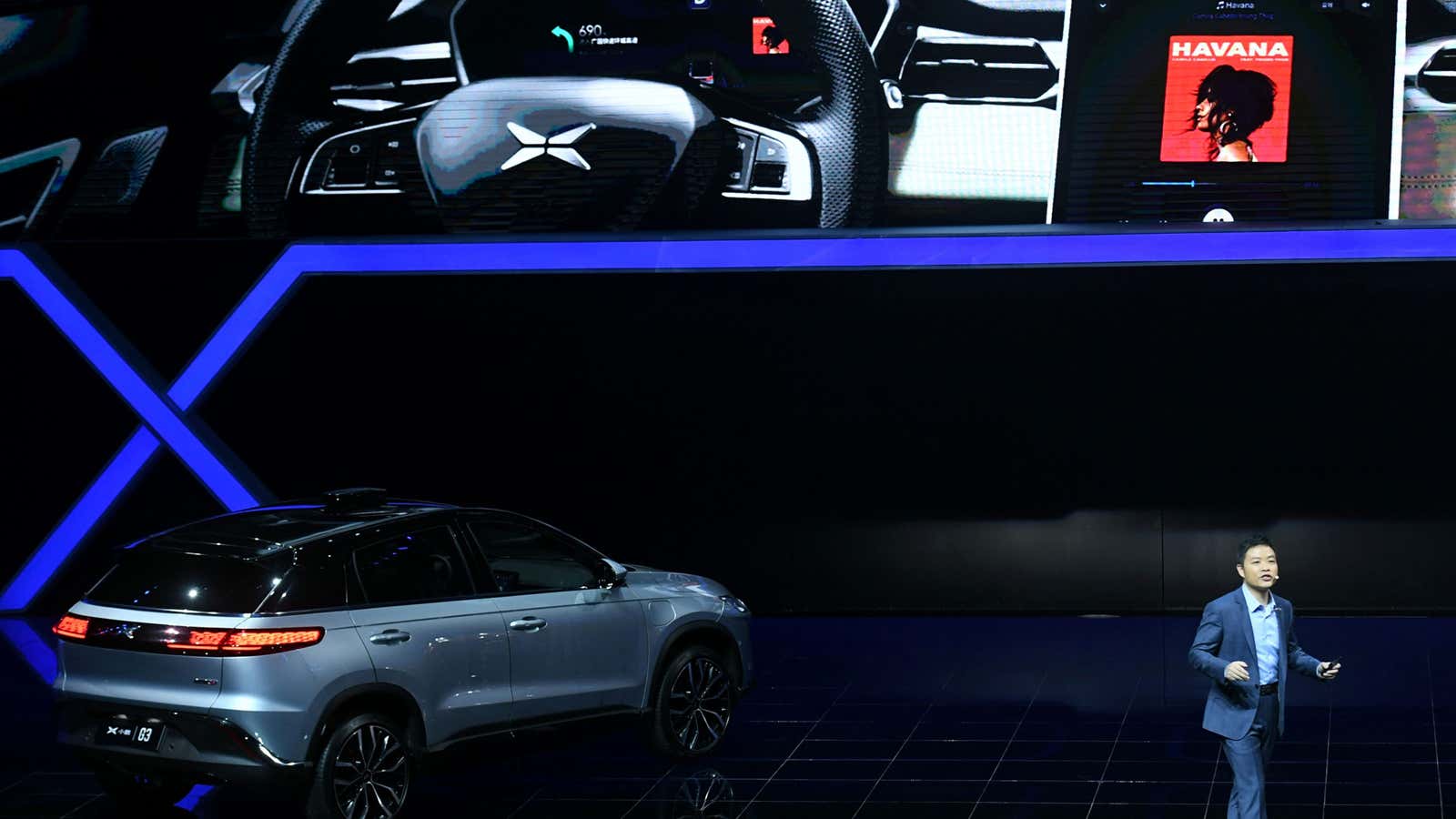As soon as Chinese electric car makers manage to get their vehicles on the road, an IPO often seems the logical next step. The “wild swings” in stock price notwithstanding, as Tesla founder Elon Musk complained in August, it’s a way to both fund future expansion and make early investors happy (hopefully).
In September, NIO, a four-year-old Chinese EV startup debuted on the New York Stock Exchange, when it had delivered 481 cars. This week, having delivered a total of 24 units (link in Chinese) of its $30,000 Xpeng G3 compact electric SUV to customers, Xiaopeng Motors, another Chinese Tesla-inspired EV startup, also appears to be thinking ahead to an IPO.
Brian Gu, the company’s vice-president, said Thursday (Dec. 13) (link in Chinese) at a media briefing that the company is looking at an IPO, although there’s no specific timeline yet. “There are a few aspects to consider to an IPO, including the company’s needs, financing, business development, and brand effect… We will be watching how the market reacts to new carmakers, and we hope to have a good market value when listing. There are new developments in the science and technology board [of the Shanghai stock market], which are very good for companies like us… IPO will come naturally, but there’s no time set yet.”
In August, He Xiaopeng, founder of the firm, said in a press conference the firm had no immediate plans for an IPO, at least not until after 2020.
Founded in 2014, Xiaopeng has attracted some high-profile investors like e-commerce giant Alibaba and iPhone maker Foxconn. The EV maker has a market valuation of $3.6 billion, even though the company has only just started to deliver its flagship car. (The firm gave the first 100 or so G3s it manufactured to employees and friends.)
Any IPO plan will depend on whether Xiaopeng can survive in an EV market that’s increasingly competitive, especially as the Chinese government unwinds its subsidy program.
It’s unclear how many G3 cars the firm plans to deliver this month. In August, He said the company wanted to reach at least 1,000 before the year ends, a deadline that has slipped to February. The company wants to deliver up to 50,000 units next year, according to a representative.
The mix of ambitious goals and delivery challenges is a reflection of China’s EV market—booming, but also showing signs of bubbles. Xiaopeng is among a slew of new EV firms that have emerged in recent years, thanks to China’s continuous backing for the “new energy vehicle” sector, which includes battery-powered cars, plug-in hybrids, and fuel-cell electric cars. The country now has close to 400 EV makers, and it wants NEV sales to make up 20% of total auto market sales by 2025.
Government subsidies paired with limiting the annual quota of new fossil-fuel cars have given NEVs a growing market. But other government rules mean that only a limited number of EV startups have their own in-house manufacturing lines—making it hard to ramp up production and product quality.
Still, NIO, the startup that listed earlier this year, is on track to edge fairly close to Tesla on EV sales in China by delivering almost 10,000 cars this year.
Shen Haiyin, CEO of Singulato, a four-year-old EV firm valued at $1 billion that has delayed (link in Chinese) its delivery goal twice this year, told the Wall Street Journal earlier this year that only 10% of today’s EV startups will survive in the next five years.
Looking for more in-depth coverage? Sign up to become a member and read more in-depth coverage of China’s electric-car boom in our field guide.
